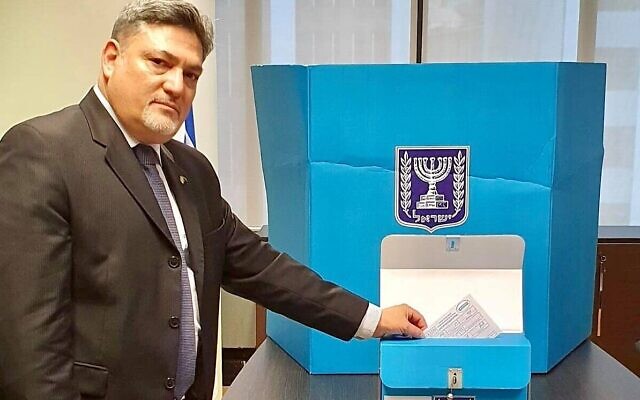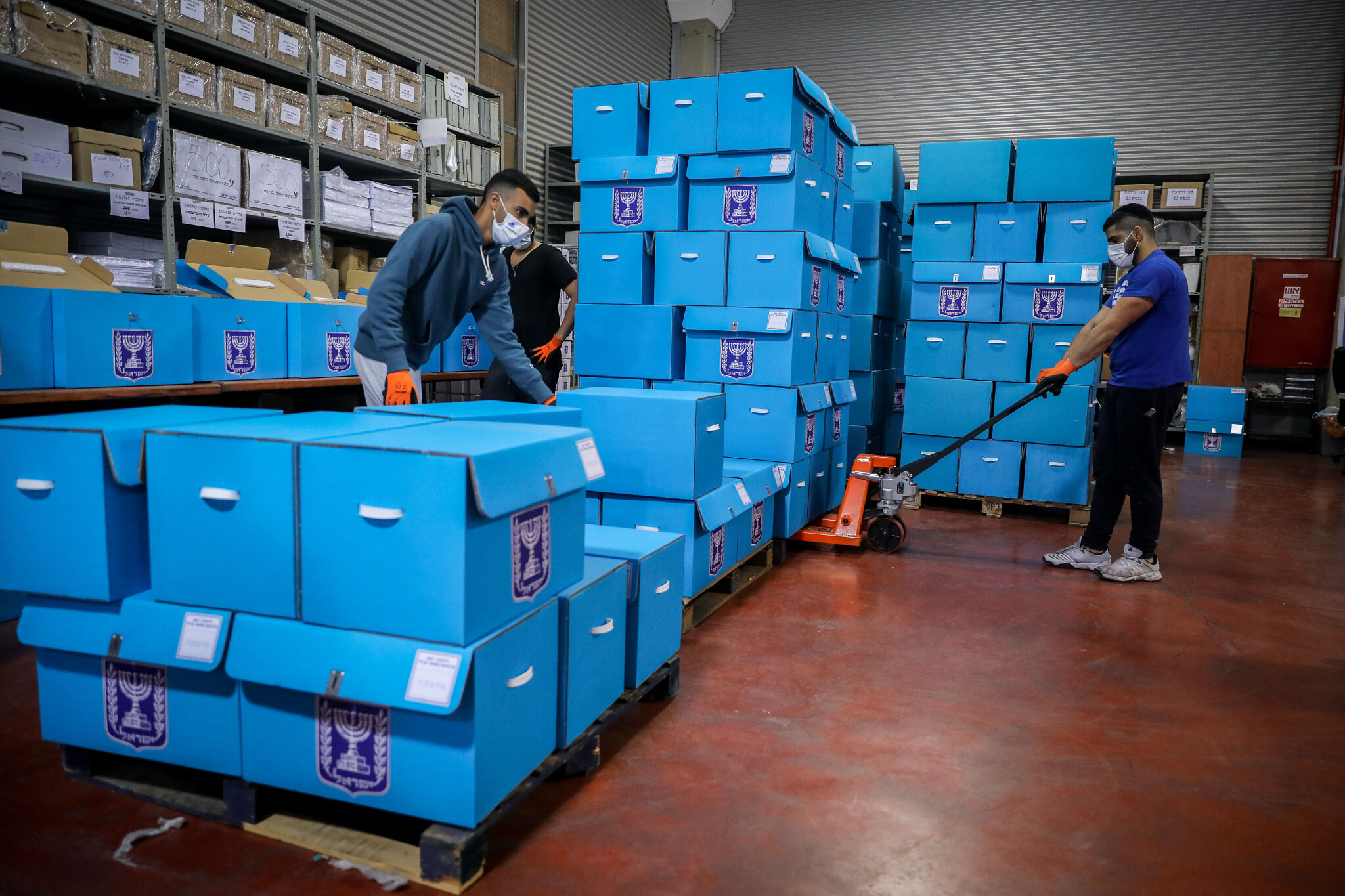Ran Yaakoby kicks off March 23 elections in Wellington; ballots boxes to be set up in four new diplomatic outposts: Abu Dhabi, Dubai, Rabat and Manama

Early voting for Israeli diplomats and staff at the country’s embassies abroad began on Wednesday evening, with the envoy to New Zealand casting the first vote of the March 23 elections
Ambassador Ran Yaakoby voted at a booth set up for diplomatic staff at the embassy in Wellington, which opened at 10 p.m. Israel time.
Following New Zealand, 103 other ballot stations will be opened at around 100 embassies and missions abroad, with the final votes taking place in Los Angeles and San Francisco.
The ballot boxes at the embassies will remain open for two days, the Central Elections Committee announced on Tuesday.

Votes in an Israeli election will be cast for the first time at four new diplomatic outposts: Morocco, Bahrain, and Abu Dhabi and Dubai in the United Arab Emirates.
Israel established diplomatic relations with the UAE, Morocco and Bahrain, as well as with Sudan and Bhutan, since the last national election in March 2020.
According to Israeli law, private citizens living abroad cannot vote unless they come to Israel, but exceptions are made for diplomats and their families. Some 4,000 Israelis will be allowed to vote at the diplomatic offices worldwide.
The law against absentee voting caused controversy in recent weeks after Israel halted flights and barred international travelers due to the pandemic, stranding thousands of citizens abroad ahead of the election. The airport has since been opened.
The upcoming election is Israel’s second to take place under the shadow of the pandemic. The previous election, in March 2020, was held shortly after the coronavirus first reached the country, with several special polling stations serving the relatively few people who had then been suspected or confirmed to have contracted the virus or come in contact with confirmed carriers.

Israel will fund special shuttles to polling stations for active COVID-19 patients during the upcoming vote, a top official said Monday, alongside further adaptations forced by the pandemic that will turn the election into the most expensive in the country’s history.
Central Elections Committee director Orly Adas also told reporters that dozens of buses will be converted into ballot stations for people in quarantine and to lower crowding in certain polling stations.
The committee is weighing placing voting stations at Ben Gurion Airport so that arrivals to the country will be able to vote there before they enter home quarantine.
There are currently close to 37,000 active COVID-19 cases in the country, and tens of thousands of people are in quarantine.
The parliament’s Economic Affairs Committee approved the CEC’s budget, totaling NIS 674 million ($202 million), including NIS 237 million ($71 million) for facing the challenges posed by the coronavirus crisis.

There will be some 15,000 voting stations throughout the country, more than the normal 11,000, Adas said, in hopes of limiting potential infections at crowded stations.
But Adas noted that there was still a shortage of thousands of employees for ballot stations serving COVID-19 patients and those in quarantine. She called on volunteers in first aid organizations, health care workers and medical students to fill that gap.
Adas added that the CEC was still devising a plan for how to count the ballots and verify the results, with the number of absentee ballots expected to be double the normal.
The week-long Passover festival also poses a challenge, starting three days after the election. Adas said the goal is to complete the tally within two days.
The election is Israel’s fourth in under two years, amid an unprecedented political crisis that failed to produce a government after the first two votes in 2019 and yielded a short-lived unity government after the third. The vote is largely regarded as a referendum on Prime Minister Benjamin Netanyahu’s leadership, including his handling of the coronavirus crisis and his trial on corruption charges.
As reported by The Times of Israel
